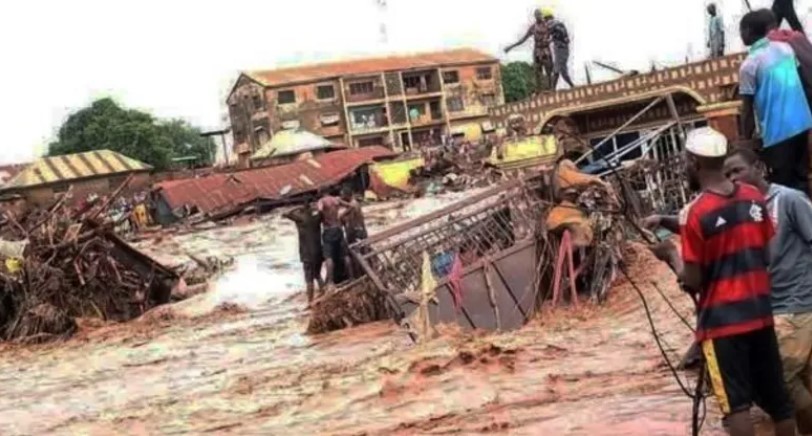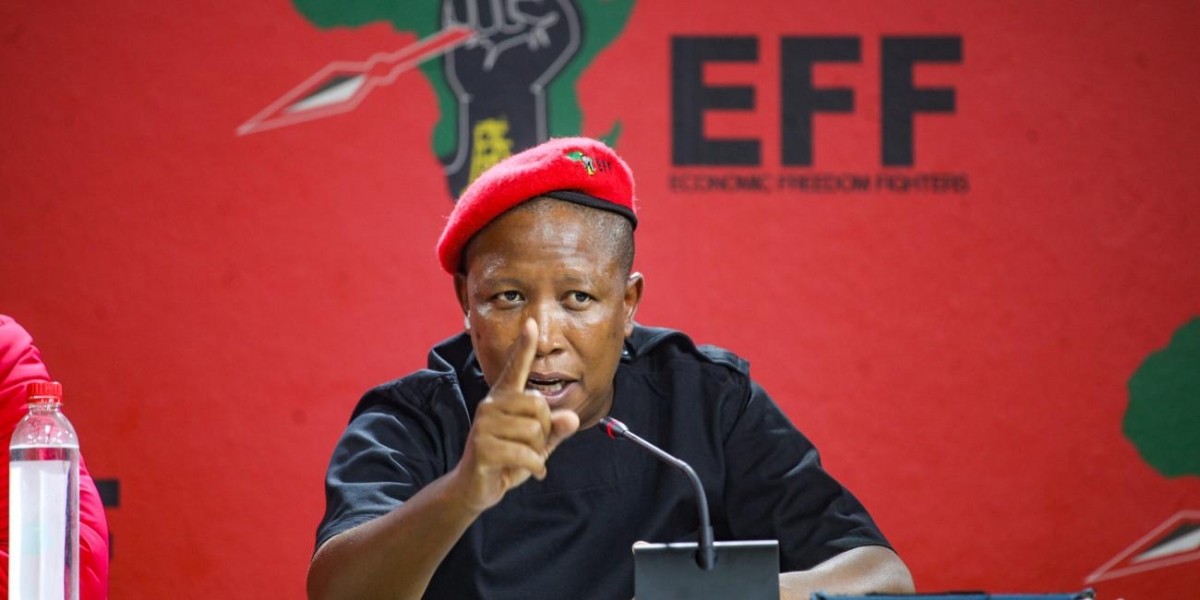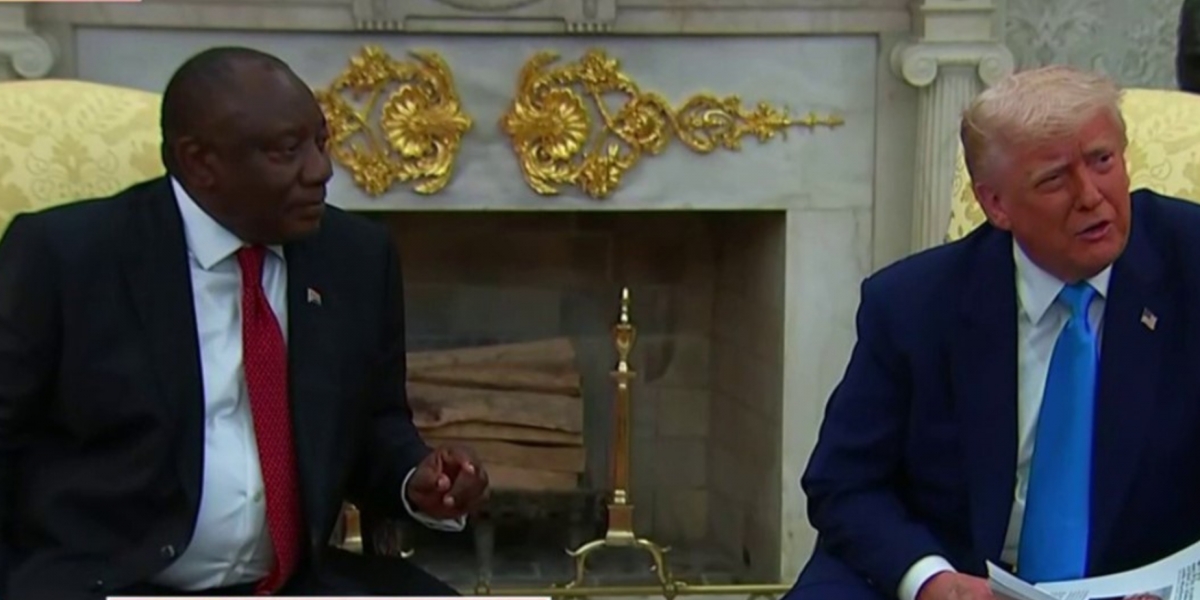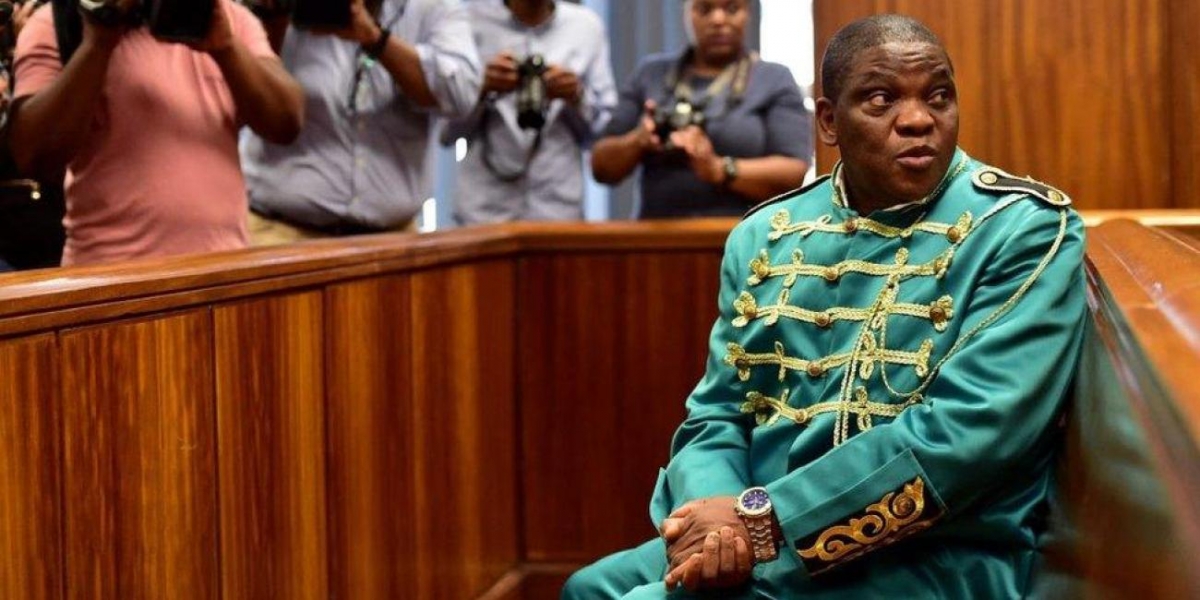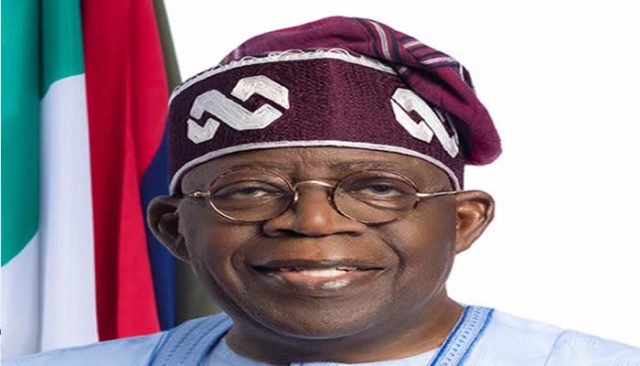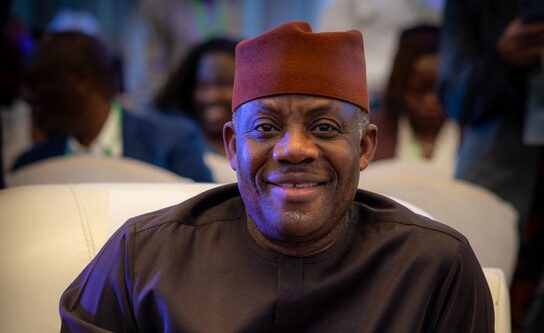Trade Ties That Bind: Africa Meets Abu Dhabi
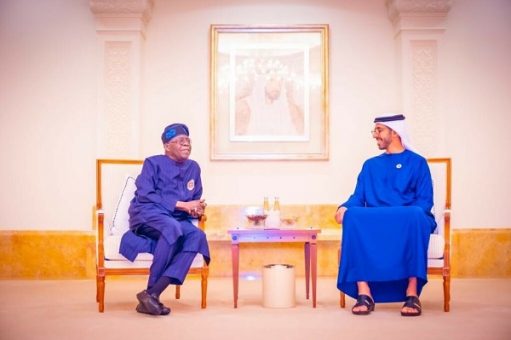
Currently, President Bola Ahmed Tinubu is taking part in Abu Dhabi Sustainability Week in 2025. Africa is gaining attention as a major investment destination with significant potential as the world's attention turns to emerging economies. With the youngest and fastest-growing population in the world, expected to nearly double to 2.5 billion by 2050, it is the last frontier market in terms of dynamism and growth. As a result, other nations, including the UAE, are beginning to recognize its growing significance.
Did you know? You can comment on this post! Just scroll down
Due to their close proximity, the UAE and Africa have a growing economic cooperation; in the past ten years, the UAE has invested close to $60 billion in the continent. Trade is a fundamental component of this economic partnership, and Africa is quickly becoming one of the UAE's most important markets. The goal for economic expansion and diversification in both regions is reflected in these trade connections, which are motivated by strategic cooperation and shared economic objectives.
With the establishment of a single, unified market, the Africa Continental Free Trade Area (AfCFTA) is anticipated to accelerate the over 30% increase in the value of imports and exports between the United Arab Emirates and sub-Saharan Africa alone during the last ten years. The UAE wants to sign more Comprehensive Economic Partnership Agreements (CEPAs) with African nations as part of its growing connections with the continent. It has already concluded negotiations with the Republic of Congo, Kenya, and Mauritius, expanding its access to the African market
As it looks to forge business relationships and guarantee access across the vital Bab al-Mandab Strait in the Red Sea, the UAE's interest in East Africa has also grown. The food and maritime security of East Africa, as well as its mineral resources, are other strategic priorities of the UAE.
With the entire volume of trade between the UAE and just six non-Arab African nations (Angola, Kenya, Nigeria, Ethiopia, South Africa, and Tanzania) surpassing $8 billion in 2020, trade between the UAE and Africa has been growing gradually over the years. Although South Africa has long been the UAE's top commercial partner, other nations on the continent are increasingly becoming more significant. One example is Nigeria, which is a major export and re-export destination for the United Arab Emirates.Tanzania has also risen to prominence, with trade between the two countries having increased to USD 1.2 billion in 2020.
With the entire volume of trade between the UAE and just six non-Arab African nations (Angola, Kenya, Nigeria, Ethiopia, South Africa, and Tanzania) surpassing $8 billion in 2020, trade between the UAE and Africa has been growing gradually over the years. Although South Africa has long been the UAE's top commercial partner, other nations on the continent are increasingly becoming more significant. One example is Nigeria, which is a major export and re-export destination for the United Arab Emirates.Tanzania has also risen to prominence, with trade between the two countries having increased to USD 1.2 billion in 2020.
Recent years have seen an increase in trade between the UAE and the nations that make up the COMESA economic grouping. With 19 member nations—including Burundi, Comoros, the Democratic Republic of the Congo, Djibouti, Egypt, Eritrea, Ethiopia, Kenya, Libya, Madagascar, Malawi, Mauritius, Rwanda, Seychelles, Sudan, Eswatini, Uganda, Zambia, and Zimbabwe—COMESA is Africa's largest economic bloc. With an estimated 600 million customers by 2025, the COMESA market is expected to grow into one of Africa's most profitable. The UAE's overall commerce (imports and exports) with COMESA nations was $47 billion in 2019. UAE exports totaled $17.6 billion in 2022, making it COMESA's third-largest export destination after China and Italy. In the same year, UAE imports reached $21.6 billion.
The UAE wants a significant portion of Africa's resources, such as mining, agriculture, and oil and gas. Along with growing into digital infrastructure, manufacturing endeavors, renewable energy, and financial services, it also seeks to strengthen its position in transportation infrastructure and logistical services. The government of Dubai, in particular, has established active partnerships with numerous African nations in the transportation infrastructure and logistics services sector; Dubai World boasts approximately 30 investment projects throughout Africa.
These include a hotel project on the island of Comoros, wildlife reserves in South Africa and Rwanda, and maritime terminals in Djibouti, Algeria, Dakar (Senegal), and Maputo (Mozambique).
The mining industry in Africa has seen substantial investments from the UAE. The nation has made significant investments in Zambia, which is rich in copper, and the Democratic Republic of the Congo (DRC). The UAE has been the first Gulf nation to actually purchase African mines, despite other Gulf nations expressing interest in investing in the continent's vital mining sector. A joint venture called Primera Gold was established in 2022 between the United Arab Emirates and the Democratic Republic of the Congo, with the UAE owning a 55% share and the DRC a 45% one. This business successfully exported 207 kg of gold from the DRC to the UAE in just 45 days.
The mining industry in Africa has seen substantial investments from the UAE. The nation has made significant investments in Zambia, which is rich in copper, and the Democratic Republic of the Congo (DRC). The UAE has been the first Gulf nation to actually purchase African mines, despite other Gulf nations expressing interest in investing in the continent's vital mining sector. A joint venture called Primera Gold was established in 2022 between the United Arab Emirates and the Democratic Republic of the Congo, with the UAE owning a 55% share and the DRC a 45% one. This business successfully exported 207 kg of gold from the DRC to the UAE in just 45 days.
Through its mining subsidiary International Resources Holding (IRH), International Holding Company, an Emirati business, acquired a 51 percent share in Zambia's Mopani Copper Mines in March 2024. The $1.1 billion purchase price was reached. IRH has also submitted a bid for Zambia's Lubambe Copper Mine. In the end, this is opening up more investment options in Zambia and the continent, including the chance to invest in other energy transition metals like graphite, cobalt, nickel, manganese, and the 3T minerals: tin, tungsten, and tantalum.
With a population of over 300 million and a GDP of over $300 billion, Kenya presents business opportunities in the manufacturing, tourism, energy, and agricultural sectors in East Africa. The nation is a major producer of fruits, vegetables, tea, and coffee, among other agricultural goods. Agro-processing, irrigation, mechanization, and value addition are all possible in the agricultural sector. Increased yields can add value by bringing agricultural output up to par with counterparts throughout the world.
Kenya, a pioneer in African innovation, has a thriving start-up scene, strong internet infrastructure, and prospects in the technology sector. Given that start-up funding has increased more than six times in the last five years and that technology start-ups raised a record $5 billion in 2021, the African technology sector alone offers substantial investment potential. The whole investment, however, is still less than 1% of what start-ups in the US were able to raise in the same time frame. This highlights a financial need that investors in the UAE and the larger Middle East can fill.
The International Finance Corporation (IFC) estimates that over 600,000 formal businesses and 40 million microenterprises could benefit from technological advancement; the yearly investment needs for infrastructure and digital transformation of businesses are estimated to be around $6 billion and $2.7 billion, respectively. Africa faces significant challenges in terms of digital development, including underdeveloped digital infrastructure and a lack of accessible and affordable connectivity. These challenges in turn present opportunities for investment in digital transformation.
Africa has experienced the fastest growth in digital infrastructure in recent years, with international internet bandwidth usage, which is a measure of submarine cable capacity, increasing by about 50 percent per year between 2010 and 2022. However, an estimated $21-32 billion in middle- and last-mile digital infrastructure is needed to improve access to high-speed internet and take advantage of the projected expansion of submarine cables by 2027.
Opportunities for economic cooperation between the UAE and Africa are also presented by the agriculture sector; the former is expected to gain from synergies with African nations in order to achieve its objective of food security. In this context, the United Arab Emirates is now finalizing a number of land acquisition agreements in Africa, which holds the majority of the world's undeveloped agricultural land. An agreement to develop a sizable piece of land in Angola was inked in July of last year by Dubai Investments and E20 Investment, an Abu Dhabi-based agribusiness investment firm. Over the course of the next 18 months, the partners intend to use the area, which is the size of 9,300 football fields, to produce 5,500 tonnes of avocados and 28,000 tonnes of rice. In order to cultivate staple grain crops, Al Dahra, an Emirati agribusiness company, has also been negotiating with Egypt to buy or lease land in Toshka under a long-term arrangement.
With a market size of over $1 billion, Western Africa has the biggest potential for renewable resources and alternative energy in the region. Public-private partnerships (PPPs) must be formed in order to address Africa's investment issues. This is especially crucial when dealing with supply chain concerns, which impact 28% of African investment possibilities. As a result of their increasingly limited financial resources, many African governments are finding it difficult to close the energy infrastructure gap.
Their capacity to fund infrastructure in the face of rapidly rising debt levels has been further hampered by the COVID-19 outbreak and the crisis in Ukraine. Over the previous ten years, the average debt ratio in sub-Saharan Africa has significantly expanded, going from 30% of GDP at the end of 2013 to about 60% by the end of 2022. More than half of sub-Saharan Africa's low-income nations were either in debt trouble or at significant risk of becoming so as of 2022. As a result, PPPs are becoming an increasingly important tool for countries looking to develop their energy sectors, as Africa's estimated yearly energy infrastructure needs can reach $170 billion.
Going forward, there are several investment prospects for the public and commercial sectors due to Africa's continuous digitalization. Additionally, the continent offers investment prospects in the energy and agriculture sectors, with the latter concentrating on renewables. Because the UAE places a high focus on food security, investments in Africa's agricultural sector continue to be a top priority.
Future demands necessitate sustained strategic investments on the continent that benefit both areas. Africa is poised for unparalleled expansion and advancement, presenting an abundance of investment prospects in diverse fields. Now is the moment for companies and decision-makers to take advantage of these new opportunities to propel economic growth and promote sustainable development on the continent.
Article Posted 4 Months ago. You can post your own articles and it will be published for free.
No Registration is required! But we review before publishing! Click here to get started
One Favour Please! Subscribe To Our YouTube Channel!
468k
Cook Amazing Nigerian Dishes, Follow Adorable Kitchen YouTube Channel!
1.1m
Like us on Facebook, Follow on Twitter
React and Comment
Click Here To Hide More Posts Like This
Watch and Download Free Mobile Movies, Read entertainment news and reports, Download music and Upload your own For FREE.
Submit Your Content to be published for you FREE! We thrive on user-submitted content!
But we moderate!




